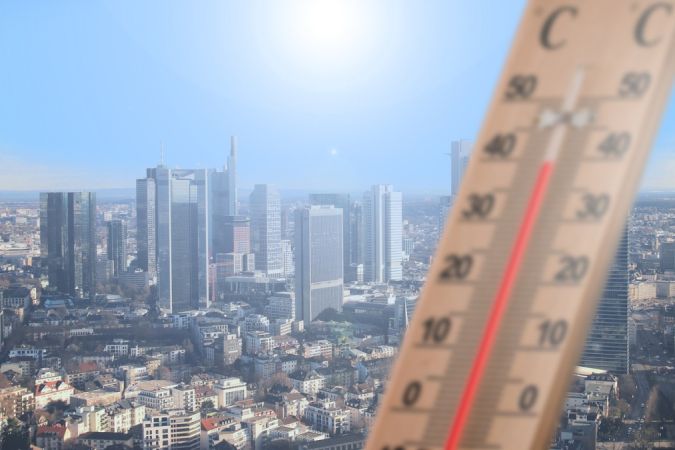– Shruti S. Murkutkar
Temperature fluctuations are becoming an increasingly noticeable concern in cities across India. With urbanization and climate change, Indian cities are experiencing extreme heatwaves, rising temperatures, and unpredictable weather patterns. These changes not only affect the environment but also pose significant challenges to human health, lifestyle, and economic stability. In this article, we will explore the temperature changes occurring in various Indian cities, their impact on the people living there, and the global consequences of these shifts.
Temperature Changes in Indian Cities: Indian cities, known for their rich culture and dense populations, are facing rising temperatures due to urban heat island effects and climate change. Cities like Delhi, Mumbai, Bengaluru, and Kolkata have witnessed an increase in average temperatures over the past few decades.
For example, Delhi has seen a rise in the number of heatwave days, with temperatures reaching 45°C or higher in recent years. In 2019, the city recorded one of its hottest summers, with temperatures soaring to 48°C, which caused widespread discomfort and health risks for the population.
Similarly, cities like Chennai and Ahmedabad have also been experiencing rising temperatures, with urban areas becoming significantly warmer than rural regions due to concrete structures and lack of green spaces. This urban heat island effect is making cities more vulnerable to extreme weather events, such as heatwaves, storms, and heavy rains.

Impact on Human Health: Rising temperatures directly affect human health, especially vulnerable groups such as children, the elderly, and people with pre-existing health conditions. Heatwaves can lead to dehydration, heatstroke, exhaustion, and even fatalities. In India, studies have shown a rise in the number of heat-related deaths in urban areas, with heatwaves contributing to the increase in hospital admissions due to heat-induced illnesses.
In addition to physical health, extreme temperatures can affect mental well-being. People living in cities with rising temperatures often suffer from stress, anxiety, and sleep deprivation, as excessive heat makes it difficult to rest and recover. The lack of proper cooling infrastructure in many parts of the country exacerbates the situation.
Impact on Economy and Infrastructure: The rising temperatures also have a direct impact on India’s economy and infrastructure. Agriculture, a significant source of livelihood for millions, is highly sensitive to temperature changes. Increased heat and erratic rainfall patterns are leading to crop failures and reduced agricultural productivity, threatening food security and farmers’ income.
Infrastructure is another area that suffers due to extreme heat. Roads, railways, and buildings are designed to withstand average temperature conditions. However, prolonged exposure to high temperatures leads to the deterioration of these structures, causing cracks in roads, damage to rail tracks, and increased energy consumption for air conditioning. This not only burdens the economy but also strains public resources.
Global Effects and Case Studies: India’s temperature changes are not an isolated issue but part of a global trend linked to climate change. The rise in global temperatures, driven by human activities like burning fossil fuels, deforestation, and industrialization, is intensifying the heat in urban areas worldwide.
For example, the case of Paris, France, illustrates how rising temperatures can have global implications. In 2019, Paris experienced a record-breaking heatwave, with temperatures surpassing 45°C. This event highlighted the vulnerability of cities worldwide to extreme heat and the need for global action on climate change. Similarly, cities like New York, Sydney, and Cairo are also grappling with rising temperatures, with each facing its own set of challenges in adapting to the changing climate.
In India, the global effects of temperature rise are evident. The melting of glaciers in the Himalayas, which provide water to millions, is a direct consequence of global warming. This threatens the water supply for cities like Delhi, Shimla, and Leh, where residents depend on snowmelt for drinking water and agriculture.
The temperature changes in Indian cities are a stark reminder of the pressing need to address climate change. As urban areas continue to warm, the impact on human health, economy, and infrastructure will only grow unless urgent action is taken. While India is taking steps to combat climate change through renewable energy initiatives, better urban planning, and tree plantation campaigns, global collaboration is essential to mitigate the long-term effects. Only through concerted global efforts can we ensure a sustainable and livable future for all.
The rising temperatures in Indian cities serve as a wake-up call, not just for India, but for the world to take immediate action in tackling the climate crisis before it becomes too late.



